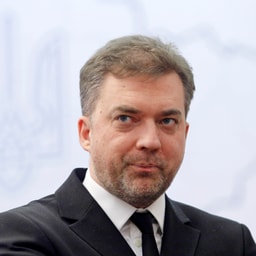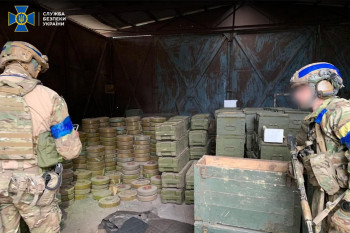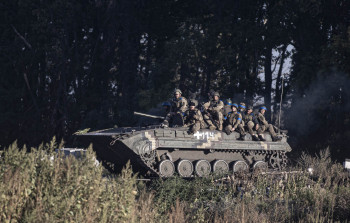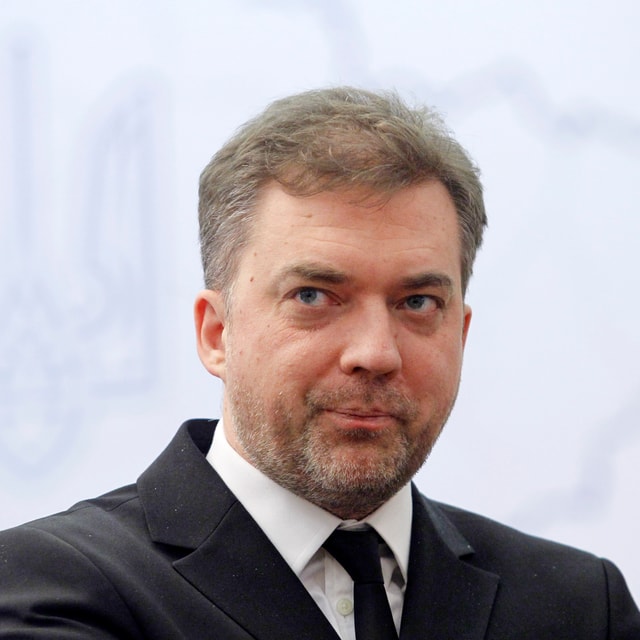Andriy Zagorodnyuk: How Ukraine’s counteroffensive will affect Russia’s army, future of the war
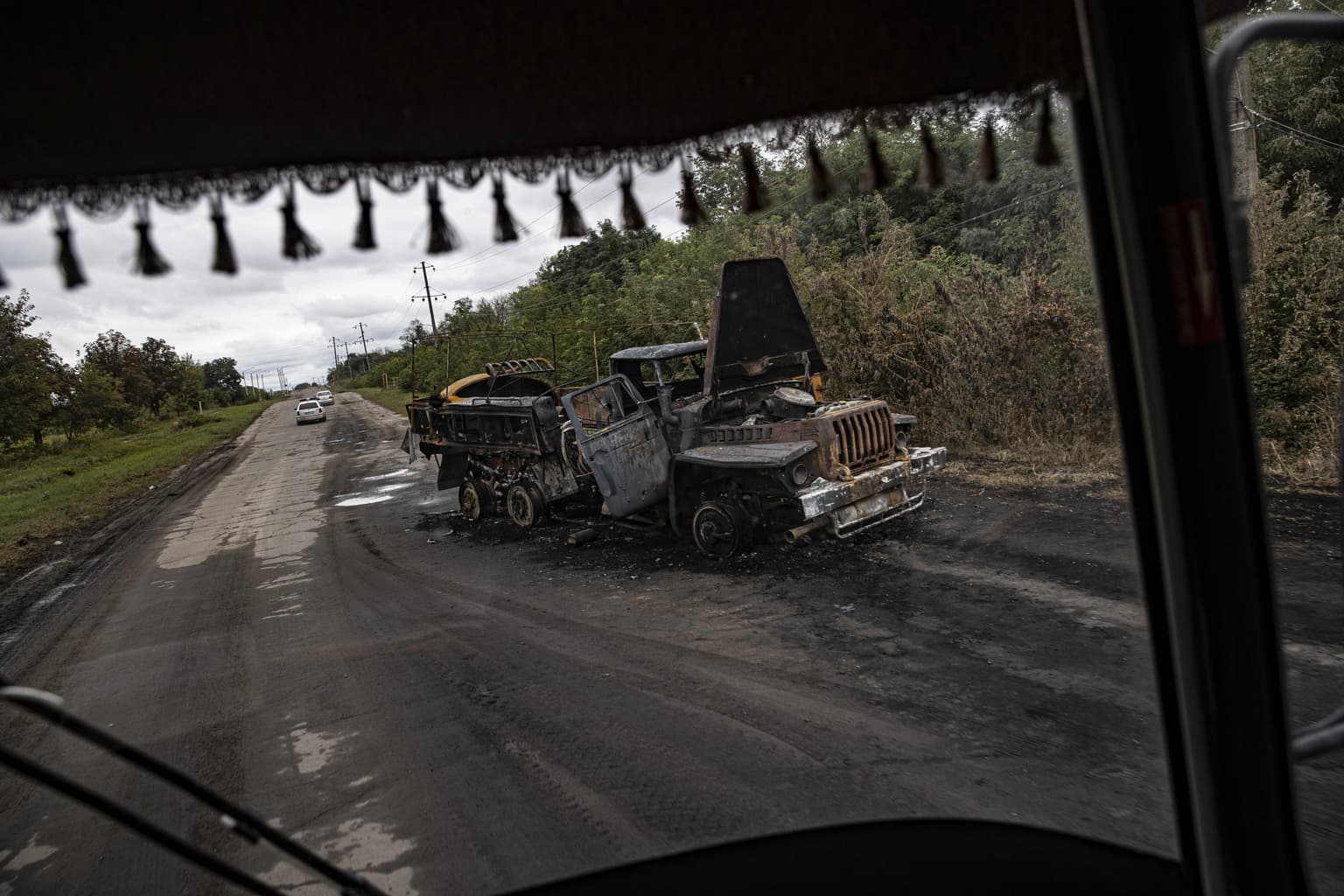
Editor’s Note: This is an analysis by Andriy Zagorodnyuk, ex-Defense Minister and the chairman of the Center for Defense Strategies, a Kyiv-based think tank. It was originally published in Ukrainian by Ukrainska Pravda on Sept. 14. The Kyiv Independent has translated it and is republishing it with permission.
The remarkably successful actions of Ukraine’s Armed Forces over the past week, including the defeat of Russian military units in Kharkiv Oblast, have great strategic and, without exaggeration, historic importance.
They have substantially changed Russian forces’ capabilities to further hold occupied territories.
In this analysis, we reveal the consequences of these events, the further development of the war as a result of Russia’s defeats, and whether Russia will be able to effectively engage in warfare going forward.
Consequences of Russia’s defeat
It is hard to overestimate the importance of events at the front line in the past several days. Information about Ukrainian forces defeating Russian forces has spread all across the world.
We are in particular talking about the frantic withdrawal of the Russian units, the panic among its personnel, the lack of intention to show any resistance at the front line and the rapid advance of the Armed Forces of Ukraine stretching dozens of kilometers.
The Ukrainian counteroffensive has ultimately ruined the image of the Russian army as strong and capable of creating a serious, immediate threat to the democratic world.
Ukrainian fighters have received another confirmation of their advantage, both psychological and in combat, over the enemy. The international media community is actively discussing footage of Russian soldiers fleeing or surrendering, as well as the great amounts of Russian military equipment and ammunition that has been captured by the Ukrainian Armed Forces.
The footage of the Ukrainian population greeting the (Ukrainian) soldiers shows how hopeless is the idea that the population could easily adapt to the occupying authorities.
In addition, this development shocked the Russians themselves. The Russian government was trying to conceal the facts under the regular propaganda messages. However, the scale and the speed of recent developments have been so impressive that the information about them appeared in the media space regardless, leaving no opportunity for the Russian government to influence it.
The Russians who learned the truth, realized how demotivated the Russian army personnel is, that they themselves don’t believe in their victory and their potential.
This made it clear that the Russian soldiers are the first ones to not believe that the Russian army is strong. Such moral and psychological state among personnel makes victory impossible.
No less important is the fate of collaborators, which shows that Russia can’t be relied on as it is in a losing position.
These are all relatively obvious things. But the consequences of these events are very significant.
Understanding the cultural and organizational peculiarities of the Russian army, as well as the international take on these events, allow us to draw additional conclusions.
What do these events mean for the Russian army?
From now on, fear will permeate all the actions of generals and officers of the Russian troops.
It will not be the fear of the humiliating future of the Russian Federation, its army, destabilization, and the possible collapse of the state after defeat. Rather, it will be the personal fear of generals and officers for their lives and their future in the ranks of the Russian Armed Forces.
The past life of the Russian Federation is crumbling. The image of a reliable and immovable rock, the Russian Armed Forces, has been shattered. Now, Russian soldiers’ main exercise is to avoid becoming victims of yet another failure of their army.
Understanding the organizational culture of a post-Soviet army, we can say that every Russian army officer is afraid of being part of wrong decisions, accusations of miscalculations, negligence, and mistakes.
More than anything, a Russian soldier will be afraid at one level or another to lead units that will run from Ukrainian troops. They will be afraid to lead the brigades and battalion tactical groups that Ukraine’s military might destroy. They will be afraid to command ships that will go down when hit by Ukrainian missiles. But most importantly, they will be afraid of being a cog in the system that might be held responsible for another failure.
The Russian army inherited the Stalinist tradition of looking for the extreme and, by all means, punishing the "shooter.”
In the absence of any hint of democracy in the country and, accordingly, of democratic control in the army, the Russian military has long become isolated It is a closed world accountable only to the head of state, which means it is not accountable to anyone.
The Russians could afford to spend the world's third-largest defense budget, more than $60 billion a year, as they pleased. For years everything went "great." They organized and successfully conducted staged training, completed all tasks, and achieved their goals. The country cultivated an image of excellence and greatness of both the army and the country it protected from terrible external enemies.
At the same time, officers must, first of all, perform quantitative indicators. Everyone was interested in quantity: the number of military personnel, missiles, planes, and tanks.
In contrast to the NATO planning system, where there are clear indicators of combat capability and combat readiness of units, in the Russian army, the doctrine does not even have the very concept of comprehensive capabilities. In fact, the Russian language does not have the word "capability."
There is no effective control system and no system for determining the quality of events and the combat potential. As a result, thousands of supposedly existing tanks turned out to be incapacitated, and hundreds of missiles fell without reaching their targets.
Western analysts could not calculate this difference between quantity and quality and, therefore, expected much more from the Russian Armed Forces at the beginning of the war.
Russian forces are trying to make up for their losses within the first six months (of the full-scale invasion of Ukraine) by recruiting new troops, unprepared for actual combat. But for officers, it is important to fulfill the quantitative part and only formally implement the task of forming additional units and restoring the old ones.
Any officer who served in the Soviet or the old-style Ukrainian army knows these old traditions destroy efficiency.
According to these traditions, what is required is not victory but the fulfillment of a narrowly set task. Before receiving the rank of general, an officer of the Soviet-style army builds a career, understanding that his opinion is of no interest to anyone – the only important thing is the conscientious execution of orders, no matter how absurd they might be. And in every failure, there must be a designated guilty person.
In recent years, the Ukrainian army has been actively rooting out Soviet traditions, some of which date back to the army of the Russian Empire. This eradication is not easy. Many of the remnants of these traditions still exist today. But the process has started, it has gained momentum, and it will not be possible to stop it. Even intermediate results made it possible to radically change the effectiveness of our army.
In contrast, nobody in the Russian army has even requested changes and rejection of the old system On the contrary, the Soviet past and approaches were not subject to critical evaluation but were supported and cultivated. The leadership of the Russian Federation believed in its propaganda about the achievements of the USSR in the Second World War as an absolute model of military art.
The ineffectiveness of the Russian army lies deep in its traditions and decision-making methods and, therefore, will not change.
The Russian army follows the approaches not only of Stalin and Zhukov but also of Nicholas I, who lost the Crimean War just as Russian dictator Vladimir Putin is losing this one, and for the same reasons. The issue lies in fundamental factors that are the basis of Russian society.
Neither changes in the management of the "operation" nor replacing one general with another will change the post-Soviet, imperial army built on the Russian mentality.
Therefore, the main task of the Russian officer from now on will be to save himself. To save himself from being in the wrong place at the wrong time.
Defeat in Kharkiv Oblast will haunt all commanders of the Russian army. They now understand the next Ukrainian breakthrough could be anywhere, and where they will least expect it.
How will the defeat affect Russian leadership’s decisions?
Russian leaders are afraid of failing. Extensive evidence suggests that they were not prepared for a long war. Their task was to conduct a quick military operation, having a limited amount of time.
Seizing and retaining control of all of Ukraine seemed like an impossible mission even with the number of troops Russia had in February. Russia’s leaders, however, firmly believed in their invincibility.
Since it was Putin who wanted this war, it’s likely that, in the best traditions of authoritarian countries, no one did an objective assessment of its outcome and argued with the leadership. You can’t argue with dictators – dictators know better. And those who dared question the greatness of the Russian army would be accused of cowardice.
Academics have coined the term “echo chamber” for when authoritarian leaders only hear their own ideas and opinions from subordinates. History knows examples of fatal military mistakes when decisions were made in such circumstances.
According to Russia’s initial plan, a long, large-scale war was out of the question. After all, it would mean that Ukraine is a powerful enemy, and the Russians didn’t believe this. Defeat by the nation that they called "non-existent" and the army that they called "fake" is not just humiliating – it’s a disaster that could potentially lead to a change of regime or even the collapse of the empire.
Putin's regime relies on the image of strength, arrogance towards others, and violation of social norms of coexistence. Russians say, "Because we can." Therefore, such a regime "can’t lose.” But what does the regime do when it is losing?
Right now they conceal their losses and call any retreat "a change of plans" or "a gesture of goodwill." When the flagship of Russia's Black Sea Fleet Moskva sank, they called it “an accident.”
Explaining the loss of the flagship of the fleet by saying that the crew messed up – not by pointing at the enemy – was unprecedentedly absurd. It shows Russia’s complete inability to admit defeat. But the defeat in Kharkiv Oblast will be difficult to explain to anyone.
We say that Russia’s complete defeat is inevitable not just because we have faith in Ukraine’s Armed Forces, which remains unshakable no matter what, but through a rational assessment of the situation.
Domestic and international experts have analyzed the capabilities of the Russian army, their potential, and their ability to continue the war. It’s already clear that they can’t significantly increase their military capabilities in Ukraine.
Russians know that with the help of Ukrainian and international intelligence data, we can see their positions down to specific military units and equipment. We can find and exploit gaps in their defense.
How will the decisions of Russian commanders change after Ukraine’s counteroffensive?
There will be more defeats and bad news requiring explanations. New calls to punish the criminal negligence of officers from the mouths of Russian bloggers and propagandists. They will need new victims on whom failures will be blamed.
What will an officer of the Russian army do when he realizes he could become the next scapegoat? He will avoid responsibility by moving the decision-making process as high as possible from himself in the organizational structure. It is better for a Russian officer to lose his unit and position as a result of a wrong decision than to argue with such a decision.
To take a stand against management is to show them they are incompetent. If in taking a stand, an officer judges incorrectly, there will be consequences.
Both scenarios stand in the way of a career in a Soviet-style military. Therefore, any initiative from below in the Russian army is impossible. This is the main fundamental difference from the Ukrainian army and the main reason for the future defeat of Russia.
The Ukrainian army does not conduct any "special military operation" with unclear political, strategic, and even operational goals. We are fighting for the existence of our country and families, and the whole country is doing it in one way or another. We are waging a total war against an existential enemy.
Russians understand that a short victorious war remained only in their dreams — it has not happened and will not happen.
They see that the fallen soldiers are being replaced by untrained and unmotivated soldiers who quickly figure out the difference between reality and the image on TV that attracted them to the ranks of the aggressor.
They know there will be no victory because Russian forces do not have the strength to attack Kyiv or other regions of Ukraine.
Already today, according to intelligence, their army is carrying out purges and punishments for the failure in Kharkiv Oblast and changing leaders at various levels. Already today, Russian officers are looking for salvation from the repressive machine of the losing Russian army.
Therefore, their main goal is to sit out and return home safely. When an overwhelming number of commanders take this approach, the army is guaranteed to lose.
Issues in excessively centralized decision-making
This vision of their role and place in the war leads to an excessive centralization of decision-making.
This is how they avoid responsibility – commanders of different levels move decision-making to the top. Decisions are made very far from the place of their execution, therefore, causing delays and incompliance of decisions with the requirements of the operational and tactical situation.
It is the centralization that is the main reason for the inability to maintain attention on all areas of the front.
Commanding officers cannot quickly react and support offensives on several operational lines. It gives the impression that the entire war is controlled, and in great detail, by one person or a small group of people. Western intelligence reports suggest that it could be Putin himself. This further increases the probability of failures because critical thinking is practically absent in such a headquarters.
The psychological impact of the escape from the Kharkiv direction, mistrust in the officers and military leadership at the operational level, combined with a lack of understanding of the goals of the war seriously demotivates soldiers and officers at the tactical level.
In the future, escapes are possible in various directions because in anticipation of their defeat, the soldiers of the Russian Federation will think primarily about their own salvation.
What will be the consequences of the counteroffensive on the international level?
The Russian Federation's leadership’s biggest concerns should be on the international level.
The defeat in Kharkiv Oblast sends a signal to the whole world: Ukraine can win not only by forcing Russians to retreat, depriving them of the means of waging war, but also through a classic counteroffensive.
Understanding that Ukraine can liberate thousands of square kilometers in a few days and force Russians to flee rapidly is a signal of effective support. Western allies always like being with those who win or at least can win.
Ukraine demonstrated not only the ability to work with new technology and conduct offensive operations. Ukraine demonstrated the ability to act unpredictably and catch the enemy by surprise.
It is also very important that Ukraine has demonstrated the ability to not allow Russians to push the narrative of the war upon us again. Today, a number of the world's leading analysts express agree: the initiative in this war is undoubtedly in Ukraine’s hands.
Allies once again confirmed their intention to support Ukraine until victory. On Sept. 9, at the Yalta European Strategy (YES) conference the U.S. President's National Security Advisor Jacob Sullivan made it absolutely clear that the U.S. intends to support Ukraine as long as necessary.
Billions of funds provided and these types of statements indicate that it no longer makes sense for allies to step back, and they do not plan to do so.
Following (Ukraine’s) success in Kharkiv Oblast, this should finally convince Putin that his plan is doomed. However, it is not clear whether he wants to face reality.
If Putin thought rationally, he would not have started this war at all, especially the full-scale offensive with the forces and means that he concentrated in late February.
Despite the stunning failures of the Russians in recent days, the war is still ongoing, and new twists and surprises await the Russians.
Ukraine will certainly win the war in the foreseeable future. We all should do everything possible for the victory, support and believe in our Armed Forces.
